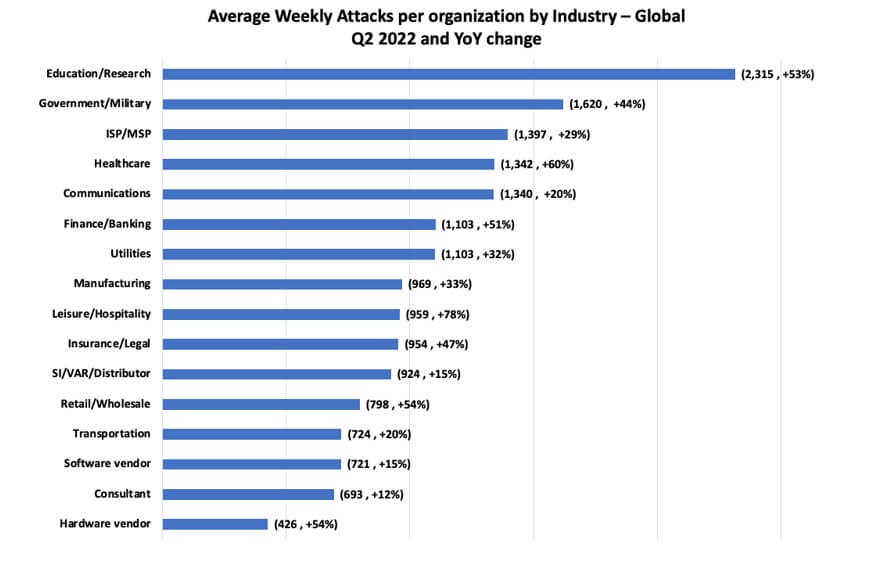Top 4 Cybersecurity Best Practices
The digital world has made it easier for businesses to reach customers and allow teams to work remotely. But with this increased connectivity comes increased risk. The technologies that make your business more accessible to your customers can also make it more vulnerable to cyber-attacks. Over the past year, there has been a 32% increase of weekly cyberattacks with healthcare, finance and utilities being among the top 10 targeted industries.

What is a cyber-attack?
A cyber-attack is any malicious attempt by an individual or group to disrupt the normal operation of a business, website, network, or computer system. Such attacks may be motivated by financial gain, ideology, revenge, or other personal motivation. There are many ways such an attack could occur – from sending spam emails to breaking into a company’s system through a security flaw in their website code or software. And with the prevalence of online marketplaces like Amazon and eBay, as well as apps like Uber and Airbnb, there are more ways than ever for hackers to target specific companies and their confidential data.
4 Best Practices to Implement Now
When it comes to cybersecurity, it can be overwhelming to know what to do. Start with these four key strategies to help improve your organization’s security posture:
1. Ensure Strong User Authentication
This may sound like an odd first suggestion for protecting against online attacks. Still, it’s essential to ensure that you securely authenticate your users. Using two-factor authentication whenever possible ensures that hackers can’t guess login credentials. In addition, creating and using a different login for each app or website is best. Randomizing these logins increases the difficulty of quickly guessing combinations like “admin,” “admin1,” “admin2,” or even your name.
2. Up-to-date Security Software
The best way to deal with a threat is to prevent it from ever happening in the first place. While antivirus and anti-spam software should be a given for any company, it’s essential to invest in top-quality software that can stop and prevent attacks before they happen. A firewall, antivirus, anti-spam, anti-malware, and even a password manager can all go a long way in protecting your company from online attacks.

3. Be Diligent When Working with Third Parties
While outsourcing functions like customer support, content writing, and logistics can help your business grow, you should remember that these are third parties accessing your data. Choosing partners carefully and establishing solid contractual agreements to protect your data is essential. If you’re using software or apps that access your data, it’s important to know what those tools are doing with your data. It’s also critical to understand how you can revoke or turn off access to your data from those tools in case they are hacked or compromised in some way.
4. Assess and Understand Your Network Infrastructure
Whether you own a small shop or run a large corporation, you’ll need to be aware of the different types of networks in your business and how they work together. This includes assessing your internet service providers (ISPs), routers, modems, Wi-Fi connections, and other connections that get your data from one point to another. It’s also important to make sure that your equipment is compatible with the latest technological standards to avoid compatibility issues. Finally, ensuring that your technology is secure and has the latest security patches and updates installed is critical.
Conclusion
A cyber-attack can happen to any company, no matter how large or small. The best way to protect yourself from such an attack is to stay vigilant and informed. With these best practices, you can be sure to keep your company safe and protected against online attacks.
Are you worried about your organization’s cybersecurity posture, but aren’t sure where to start? Reach out today to talk to our team of cybersecurity experts who can perform an assessment or build a cybersecurity roadmap customized to your company’s needs.







